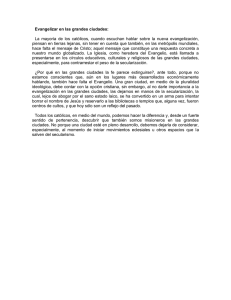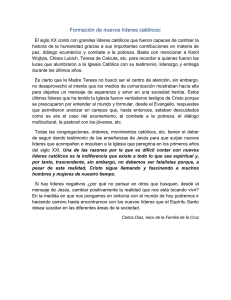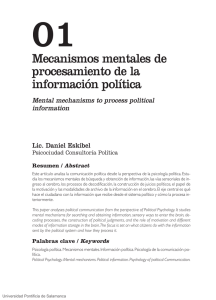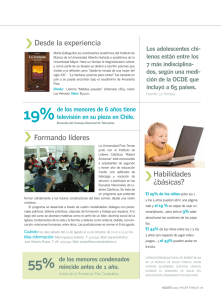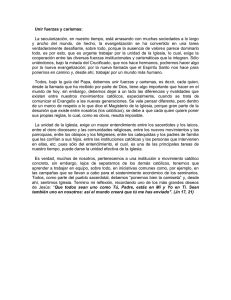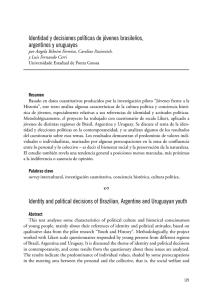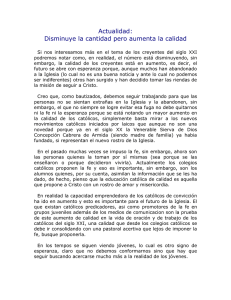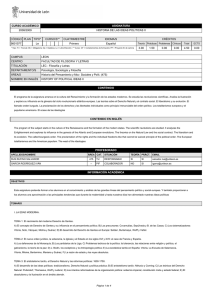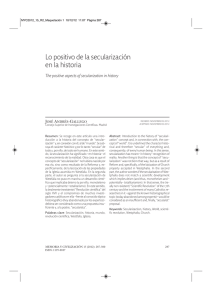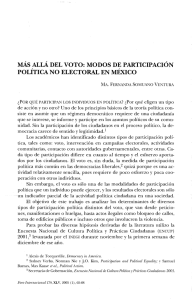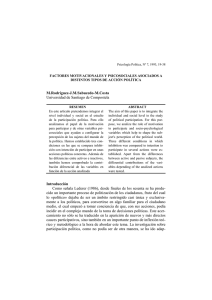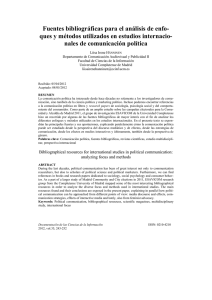Nacionalismo, cuestión religiosa y secularización política en la
Anuncio
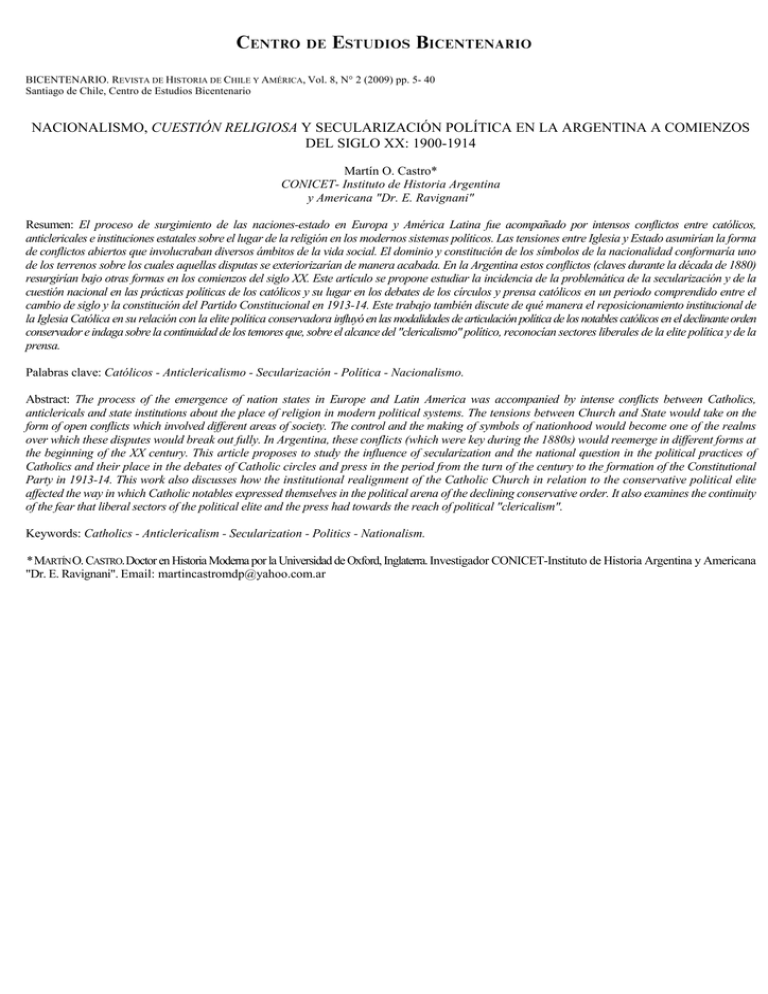
BICENTENARIO. REVISTA DE HISTORIA DE CHILE Y AMÉRICA, Vol. 8, N° 2 (2009) pp. 5- 40 Santiago de Chile, Centro de Estudios Bicentenario NACIONALISMO, CUESTIÓN RELIGIOSA Y SECULARIZACIÓN POLÍTICA EN LA ARGENTINA A COMIENZOS DEL SIGLO XX: 1900-1914 Martín O. Castro* CONICET- Instituto de Historia Argentina y Americana "Dr. E. Ravignani" Resumen: El proceso de surgimiento de las naciones-estado en Europa y América Latina fue acompañado por intensos conflictos entre católicos, anticlericales e instituciones estatales sobre el lugar de la religión en los modernos sistemas políticos. Las tensiones entre Iglesia y Estado asumirían la forma de conflictos abiertos que involucraban diversos ámbitos de la vida social. El dominio y constitución de los símbolos de la nacionalidad conformaría uno de los terrenos sobre los cuales aquellas disputas se exteriorizarían de manera acabada. En la Argentina estos conflictos (claves durante la década de 1880) resurgirían bajo otras formas en los comienzos del siglo XX. Este artículo se propone estudiar la incidencia de la problemática de la secularización y de la cuestión nacional en las prácticas políticas de los católicos y su lugar en los debates de los círculos y prensa católicos en un periodo comprendido entre el cambio de siglo y la constitución del Partido Constitucional en 1913-14. Este trabajo también discute de qué manera el reposicionamiento institucional de la Iglesia Católica en su relación con la elite política conservadora influyó en las modalidades de articulación política de los notables católicos en el declinante orden conservador e indaga sobre la continuidad de los temores que, sobre el alcance del "clericalismo" político, reconocían sectores liberales de la elite política y de la prensa. Palabras clave: Católicos - Anticlericalismo - Secularización - Política - Nacionalismo. Abstract: The process of the emergence of nation states in Europe and Latin America was accompanied by intense conflicts between Catholics, anticlericals and state institutions about the place of religion in modern political systems. The tensions between Church and State would take on the form of open conflicts which involved different areas of society. The control and the making of symbols of nationhood would become one of the realms over which these disputes would break out fully. In Argentina, these conflicts (which were key during the 1880s) would reemerge in different forms at the beginning of the XX century. This article proposes to study the influence of secularization and the national question in the political practices of Catholics and their place in the debates of Catholic circles and press in the period from the turn of the century to the formation of the Constitutional Party in 1913-14. This work also discusses how the institutional realignment of the Catholic Church in relation to the conservative political elite affected the way in which Catholic notables expressed themselves in the political arena of the declining conservative order. It also examines the continuity of the fear that liberal sectors of the political elite and the press had towards the reach of political "clericalism". Keywords: Catholics - Anticlericalism - Secularization - Politics - Nationalism. * MARTÍN O. CASTRO. Doctor en Historia Moderna por la Universidad de Oxford, Inglaterra. Investigador CONICET-Instituto de Historia Argentina y Americana "Dr. E. Ravignani". Email: [email protected]
